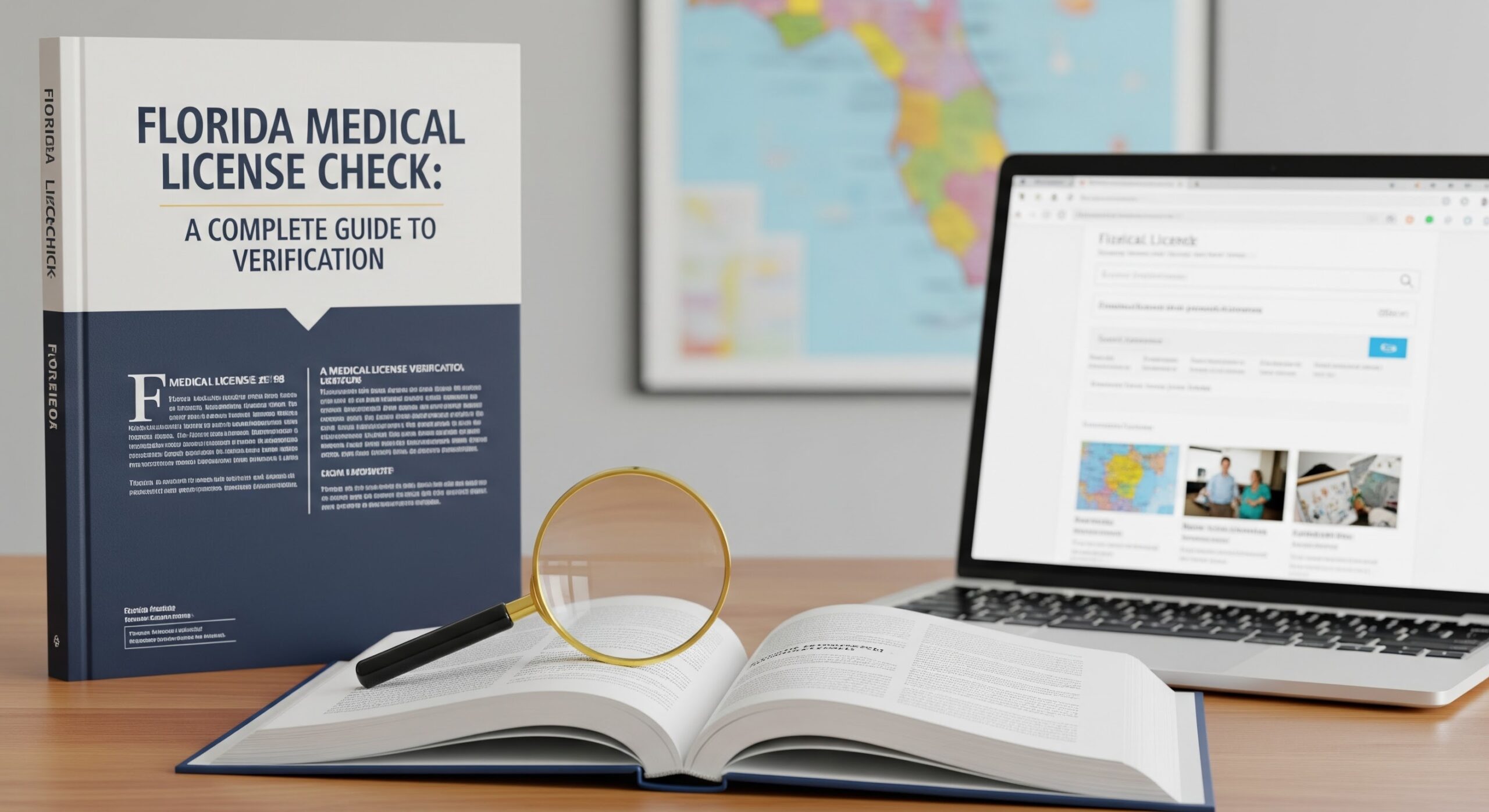Healthcare employers must conduct a florida medical license check to ensure providers are legally authorized to practice. This guide explains verification requirements, compliance risks, and best practices for protecting patients and avoiding regulatory penalties in Florida.
Continue readingHIPAA Compliance Checklist 2026: Step-by-Step Guide for Healthcare Providers
Stay ahead of compliance requirements with our HIPAA Compliance Checklist 2025. This step-by-step guide helps healthcare providers safeguard patient data, meet HIPAA requirements, and maintain trust in an evolving regulatory landscape. Learn privacy, security, and breach prevention best practices for 2025.
Continue readingHealth Care Fraud Enforcement Got You Worried?
 By: Karen Davila
By: Karen Davila
Healthcare fraud continues to be a significant priority for the U.S. Department of Justice. On February 24, 2021, the DOJ’s Criminal Division Fraud Section published its annual “Fraud Section Year in Review 2020.” While the Fraud Section has three separate enforcement units, the Health Care Fraud (HCF) Unit is responsible for all enforcement activities in the health care industry. The Unit’s focus is to protect against fraud and abuse in federal health care programs and recoup illicit gains.
During 2020, the HCF Unit operated 15 strike forces in 24 federal judicial districts throughout the U.S. The efforts of these strike forces led to charges against 167 individuals alleging $3.77 billion in fraudulent charges for health care paid for by federal and state programs. This should cause any health care provider to stand up and take notice. And enforcement in the health care industry is not likely to go away soon with so many schemes ripe for the government’s picking and generating recoupment on behalf of the federal health care programs.
Here are couple of the latest schemes that have landed pharmacies, pharmacists and other health care professionals squarely in the crosshairs of federal enforcement:
Telemarketing Compliance: Legal Considerations Before You Call
 By: Michael Silverman
By: Michael Silverman
Miami resident Adrian Abramovich certainly wasn’t laughing on Thursday May 10th, 2018 when the Federal Communications Commission (“FCC”) levied a $120 MILLION dollar fine on him for his alleged involvement in an illegal robodialing campaign. FCC Chairman Ajit Pai stated that Abramovich did not dispute that he had placed more than 96 million telemarketing robocalls over a three month period in 2016 without the recipient’s consent. Furthermore, Chairman Pai stated that Abramovich’s telemarketing campaign utilized caller ID “spoofing” which masks the calling party’s true phone number and causes the recipient’s caller ID to indicate that the call was being made by a local number. Abramovich’s telemarketing activities allegedly violated a variety of state and federal regulations; caller ID spoofing, for example, is expressly prohibited by the Florida Telemarketing Act, § 501.616(7).
With the record-breaking fine imposed on Abramovich, the FCC is sending a loud and clear message that it will not tolerate those individuals or entities that violate telemarketing laws. Any person or business engaged in telemarketing (be it a healthcare provider with a single telephonic sales representative or a business devoted to telemarketing with a 100 person call center) must heed the FCC’s unsubtle hint that enforcement activity of telemarketing laws is only heating up.Continue reading
Regenerative Medicine: Navigating New FDA Guidance for HCT/P
 By: Matt Fischer & Susan St. John
By: Matt Fischer & Susan St. John
The U.S. Food and Drug Administration (FDA) has issued new guidance for regenerative medicine manufacturers and healthcare providers. At the core of the guidance are two central interpretations: 1) the FDA’s current interpretation of the minimal manipulation and homologous use criteria set forth in 21 CFR Part 1271; and 2) the FDA’s current view on the same surgical procedure exception under 21 CFR 1271.15(b). Additionally, the FDA issued a notice to all interested stakeholders that the FDA intends to initiate increased discretionary enforcement over the next 36 months for human cell and tissue-based products. Given these developments, healthcare companies and providers impacted by this guidance are strongly encouraged to ensure compliance with the FDA’s new interpretations.Continue reading
The Truth About Healthcare Regulatory Compliance
 By: Jeff Cohen
By: Jeff Cohen
Healthcare regulatory compliance is too damn complicated sounding and scary! What the heck does it even mean? Basically it means making sure you’re following about a dozen specific laws, some of which interrelate. It’s a little like making a cake. You have to make sure you have flour, eggs, sugar and so on. And then you have to make sure you put enough in the bowl and bake it at the right temperature. So what’s so unique re healthcare regulatory compliance? Healthcare professionals and businesses are inundated by these confusing laws written in legalese, to the point where they go numb. They lose the ability to focus on them and to take them seriously. And they hire someone that uses the word “consultant” or “compliance”; and they think they’ve got compliance covered. But they don’t. And that’s a big mistake in the healthcare world!Continue reading
Medical Marijuana Law: Medical Use in Florida Part II
 By: Susan St. John
By: Susan St. John
The Board of Medicine and Board of Osteopathic Medicine Joint Committee on Medical Marijuana (the “Committee”) have started the journey to developing rules pursuant to the Medical Marijuana Use Act, Senate Bill 8A, Chapter 2017-232, Laws of Florida, Section 381.986, Florida Statutes). The Committee’s first conference was held July 14, 2017, with a follow-up conference being held August 3rd. A third conference is scheduled for August 25th during the Board of Osteopathic Medicine’s monthly meeting.Continue reading
Clinical Research & Healthcare Regulatory Compliance
 By: Jeff Cohen
By: Jeff Cohen
Doctors often consider the idea of clinical research to be an easy “add on” to their practices. The usual idea is “I already have the patients. This’ll be easy.” But that’s not the case when you start to look at the healthcare regulatory compliance issues!
Pharmaceutical companies (“Sponsors”) are often looking for resources for clinical research. They usually turn to clinical research organizations (CROs) to find research centers (Sites) and to manage some of the healthcare regulatory compliance issues in a way that creates enough distance between the Sponsor and the Site in hopes that the metrics from the patients enrolled in the study will provide clarity re the efficacy of a tested drug.
Medical practices that think it’ll be easy to become a Site will be very surprised by some of the key challenges, which include–Continue reading





 By:
By: 



